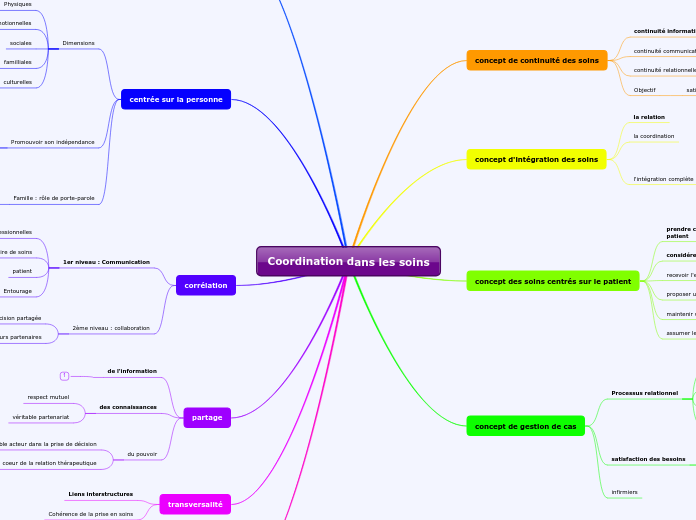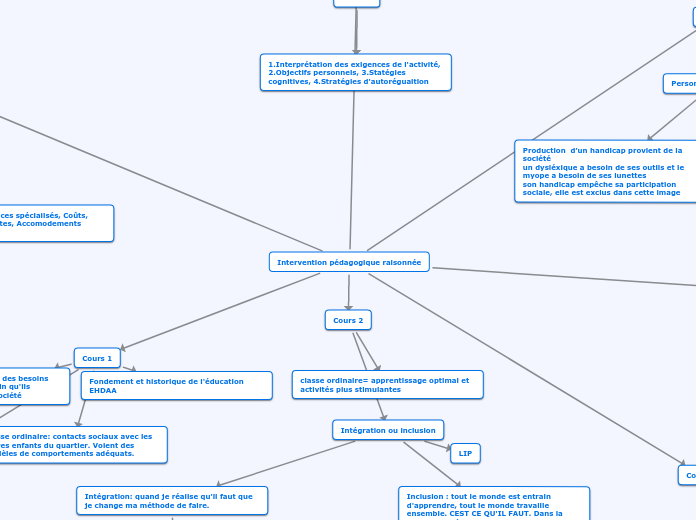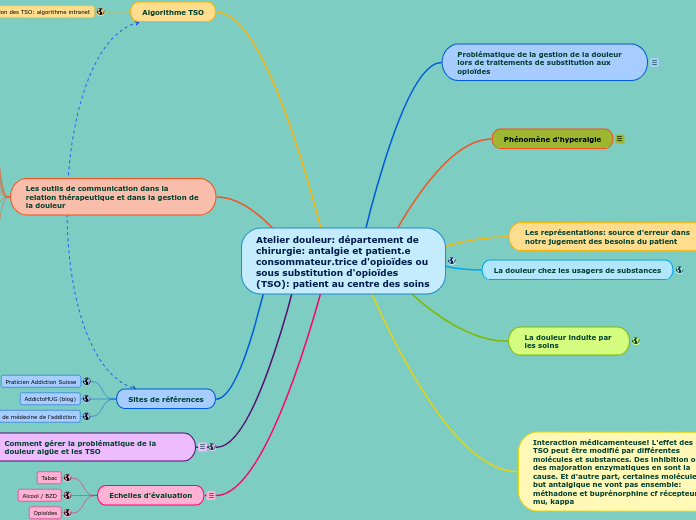Coordination dans les soins
A noun is a word that functions as the name of some specific thing or set of things, such as living creatures, objects, places, actions, qualities, states of existence, or ideas.
facilitation
Compound nouns are words where two nouns have been stuck together to make a new noun. Compound nouns should be written as one word, without a hyphen.
infirmier
aspect relationnel des soins
rôle facilitateur
Coordinateur
patients demandeurs
action facilitatrice
transversalité
Generic nouns are nouns that are part of a generic statement. Generic nouns can be singular or plural. The opposite of generic nouns is collective nouns.
The difference between definite/indefinite and generic nouns is that in the sentence there must be a blanket statement or question.
Cohérence de la prise en soins
Liens interstructures
partage
Proper nouns are the names of specific people or places. They should always begin with a capital letter.
du pouvoir
partenariat : coeur de la relation thérapeutique
patient véritable acteur dans la prise de décision
des connaissances
véritable partenariat
respect mutuel
de l'information
corrélation
A concrete noun is a noun that can be identified through one of the five senses (taste, touch, sight, hearing, smell).
2ème niveau : collaboration
Organisation entre plusieurs partenaires
décision partagée
1er niveau : Communication
Entourage
patient
partenaire de soins
relations interprofessionnelles
centrée sur la personne
Famille : rôle de porte-parole
En pédiatrie : parents experts
Promouvoir son indépendance
Etre capable de prendre une part active
aux objectifs de soins
aux décisions
aux choix
défendre ses intérêts et ses droits
Dimensions
culturelles
familliales
sociales
émotionnelles
Physiques
Plannification pro active
Possessive nouns are nouns which possess something, normally another noun.
organisation de réunion de concertation de cas
gestion des conflits
développement et application des protocoles
adaptation des plans de soin
concept de gestion de cas
Common nouns are words for people, places or things that aren’t specific (as opposed to a proper noun which refers to only one person, place or thing).
Common nouns can be countable or uncountable, singular or plural.
infirmiers
satisfaction des besoins
couverture d'assurances
conditions sociales
Processus relationnel
accès aux ressources de santé
coordination
plannification
evaluation
concept des soins centrés sur le patient
A noun which refers to a group of things/people.
assumer le plaidoyer pour les patients
maintenir un partenariat
proposer un espoir réaliste
recevoir l'expertise du patient
considérer la légitimité de l'expérience de la maladie
prendre comme point de départ la situation initiale du patient
concept d'intégration des soins
A noun which cannot be identified by using one of the five senses (taste, touch, sight, hearing, smell).
l'intégration complète
financement
responsabilités
ressources
la coordination
la relation
concept de continuité des soins
Irregular nouns are nouns which don’t follow a spelling pattern when pluralized.
Objectif
satisfaction du patient
continuité relationnelle
continuité communicationnelle
continuité informationnelle









